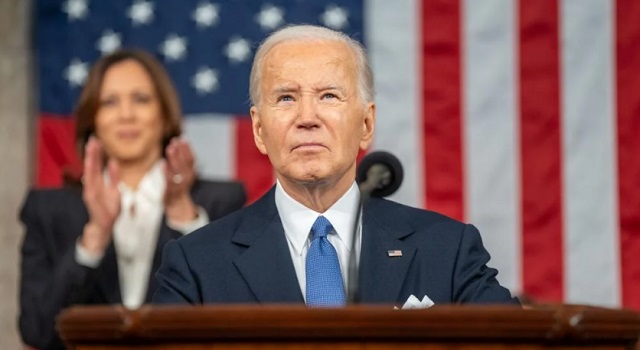From The Center Square
President Donald Trump appears unconcerned about an upcoming tariff deal deadline after abruptly ending all trade talks with Canada as his bid to overhaul world trade continues.
Trump is nearing the end of a self-imposed 90-day deadline to strike deals with nearly every U.S. trading partner as he works to reorder global trade by giving America a competitive advantage through tariffs on foreign goods.
Trump now says that the deadline could be extended past July 9 or even accelerated.
“We can do whatever we want. We could extend it, we could make it shorter. I’d like to make it shorter,” Trump said Friday at the Oval Office. “I’d like to just send letters out to everyone ‘Congratulations, you’re paying 25%.'”
On April 2, Trump announced reciprocal tariffs on nearly every nation that trades with the U.S. Seven days later, he paused those higher tariff rates for 90 days to give his trade team time to cut deals with key trading partners. That 90-day deadline ends July 9 and thus far Trump has brought home two deals: A limited trade pact with the United Kingdom and a trade truce with China.
Commerce Secretary Howard Lutnick told Bloomberg that new deals are on the way, and those could serve as models for others.
“We’re going to do top 10 deals, put them in the right category, and then these other countries will fit behind,” Lutnick said.
He said the U.S. was “close to the finish line” with India. Lutnick also said he had made an offer to the European Union.
Trump’s decision to suspend trade talks with Canada with just days left before the deadline underscored the flexibility of the president’s trade deadline.
“These are very complex negotiations and we are going to continue them in the best interests of Canadians,” Candian Prime Minister Mark Carney said Friday while leaving his office, according to local reports.
Canada has invariably been one of the top two trading partners for the United States for years. In 2024, Canada was the top destination for U.S. exports and the third-largest source of U.S. imports. On the other side, Canada exported 75% of its goods to the United States and imported almost half of its goods from the United States.
U.S. total goods trade with Canada was an estimated $762.1 billion in 2024, according to the Office of the U.S. Trade Representative. U.S. goods exports to Canada in 2024 were $349.4 billion. U.S. imports from Canada in 2024 totaled $412.7 billion. The U.S. goods trade deficit with Canada was $63.3 billion in 2024.
Services trade with Canada, exports and imports, totaled an estimated $140.3 billion in 2023. Services exports were $86.0 billion, and services imports were $54.3 billion. The U.S. services trade surplus with Canada was $31.7 billion in 2023, according to the Office of the U.S. Trade Representative.
Shortly after taking office in January, Trump hit Canada and Mexico with 25% tariffs for allowing fentanyl and migrants to cross their borders into the U.S. Trump later applied those 25% tariffs only to goods that fall outside the free-trade agreement between the three nations, called the United States-Mexico-Canada Agreement.
Trump put a stop to the talks on Friday.
“We have just been informed that Canada, a very difficult Country to TRADE with, including the fact that they have charged our Farmers as much as 400% Tariffs, for years, on Dairy Products, has just announced that they are putting a Digital Services Tax on our American Technology Companies, which is a direct and blatant attack on our Country,” Trump wrote on Truth Social.
Trump said the digital services tax was a copy of a European Union proposal.
“Based on this egregious Tax, we are hereby terminating ALL discussions on Trade with Canada, effective immediately,” the president said. “We will let Canada know the Tariff that they will be paying to do business with the United States of America within the next seven day period.”
Earlier this month, the two nations seemed close to striking a deal.
Trump said he and Canada Prime Minister Mark Carney had different trade concepts between the two neighboring countries during a meeting at the G7 Summit in Kananaskis, in the Canadian Rockies.
Asked what was holding up a trade deal between the two nations at that time, Trump said they had different concepts for what that would look like.
“It’s not so much holding up, I think we have different concepts, I have a tariff concept, Mark has a different concept, which is something that some people like, but we’re going to see if we can get to the bottom of it today.”
Trump put a 10% tariff on non-USMCA compliant potash and energy products. A 50% tariff on aluminum and steel imports from all countries into the U.S. has been in effect since June 4. Trump also put a 25% tariff on all cars and trucks not built in the U.S.
The tariffs have frustrated Canadian leaders and residents. Tensions between the two neighboring countries have been high. And cities on both sides of the U.S.-Canada border have been affected.
Trump has repeatedly suggested that Canada join the U.S. as its 51st state. He previously called former Canadian Prime Minister Justin Trudeau “governor” regularly.















